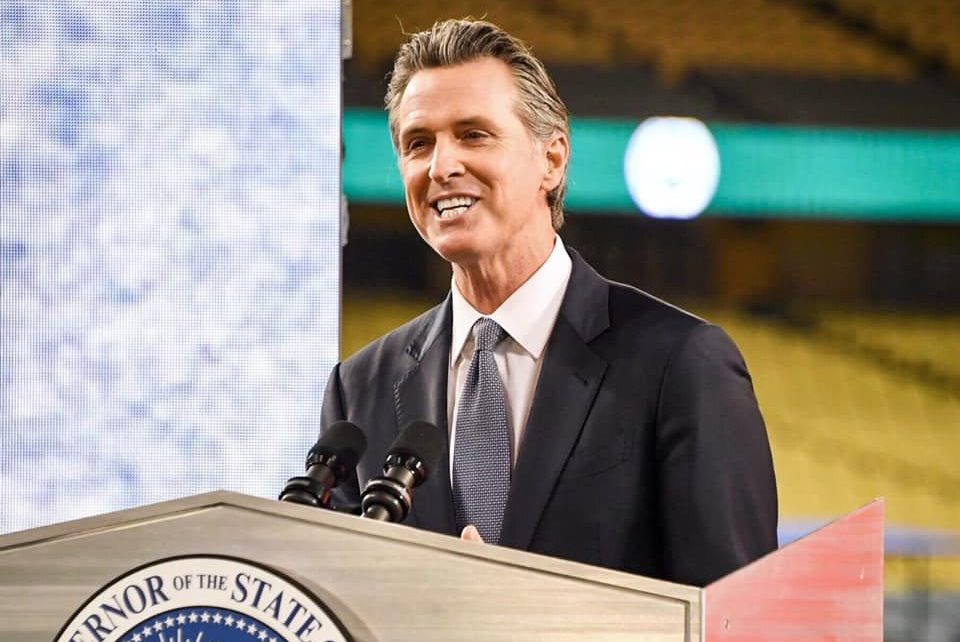
California Gov. Gavin Newsom State of the State 2021 speech at Dodger Stadium. (Photo: gov.ca.gov)
Gov. Gavin Newsom Unveils $267.8 Billion Revised Budget
‘The governor has been channeling Oprah all week, where every studio audience member gets a new car’
By Evan Symon, May 14, 2021 3:07 pm
Governor Gavin Newsom unveiled his revised $267.8 billion May budget proposal on Friday, primarily touting the addition of his $100 billion California Comeback Plan.
Newsom’s plan, which was already partially revealed earlier this week, would be funded by California’s $75 billion budget surplus and $26 billion coming from federal COVID-19 relief funds.
One of the largest blocks of funding under Newsom’s proposal is $12 billion for an expansion of the Golden State Stimulus program. Under the proposed plan, Californians making $75,000 a year or less will receive $600 from the state. Families with children will receive another $500, with undocumented families also receiving $500. Californians will also see another $5.2 billion of direct support through the doubling of rental assistance to complete 100% of back rent paid for those who fell behind payments, as well as $2 billion toward water, gas, and electric utility bills for those needing assistance. $1.75 billion will also go to affordable housing endeavors.
Another proposed $12 billion will go towards the homeless in California with a return of the Project Roomkey and Project Homekey program, along with more rent support aimed at homeless families. Programs for the homeless and jobless to go back to school or start a small business will get a $3.6 billion spending boost through the plan through grant programs, as well as through $35 million going to universal basic income pilot programs.
Billions will go to state cleanup projects on highways and public spaces, providing jobs for the homeless as well as at-risk youth. Much of that funding will also focus on local clean up efforts, such as the $40 million Clean-up California initiative that will create public art while cleaning up local areas.
Schools will also see more funding under Gov. Newsom’s $100 billion proposal, with $14.5 billion going to educational efforts such as the creation of a universal preschool program by 2024, an effort to hire more teachers and employees to reduce class sizes, add more after school programs, and add a universal breakfast and lunch program. Another $2 billion will be set aside for schools to safely reopen in time for the return of in-person classes this fall.
Another $11 billion will be directed at transportation, including $3.1 billion to be spent on rail and transportation improvements, and another $4.2 billion going to the High-Speed Rail program.
Other parts of the Governor’s proposal include:
- $5.1 billion going to California’s mental health system, including new mental health screenings and programs for Californians under the age of 26.
- $7 billion to better broadband internet connections
- $1.5 billion in additional small business grants
- Several billions in business grants and tax credits, including a $30 million tax credit for filmmakers and $147 million for businesses that are currently hiring new employees. $360 million would also go to “CalCompetes” tax credits for businesses that relocate to California.
- Several billions on drought response and water infrastructure.
- $3.2 billion going to the phasing out of gas-powered vehicles, including subsidies for switching over to electric commercial trucks and busses.
- $2 billion on new helicopters to better fight wildfires and to improve emergency response times in the state.
The $100 billion California Comeback Plan
Governor Newsom gave a speech on his budget revision and $100 billion California Comeback Plan shortly before submitting it to the state Legislature for approval. Newsom noted that he created the plan for California to not only better recover from the pandemic, but to set the state up for success throughout the decade and beyond.
“This budget that we’re about to announce, this historic, unprecedented , generational, transformative budget, is 100% the direct responsibility of 40 million people strong that not only met the moment over the last year, but met many different moments [and many] different challenges,” Newsom said on Friday. “The remarkability, the capacity for renewal and recovery is demonstrative. And that is I think will set the state up for not just a comeback, but an extraordinary decade if not century ahead.”
“It’s not lost on me that the greatness of this state, looking back on the 50s and 60s, when we were truly the tentpole of the American economy, it wasn’t by accident that the state of California thrived as much as it did during those decades.”
Many Democrats praised Newsom for his plan on Friday.
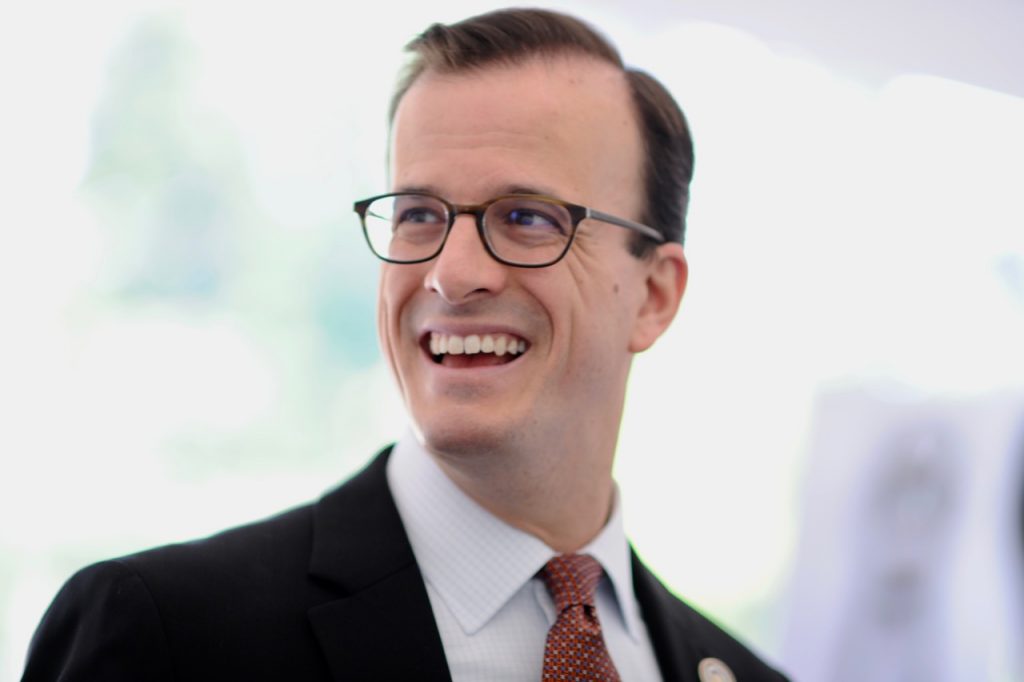
“There is a lot to be excited about in Governor Newsom’s budget proposal,” said Assemblyman Marc Berman (D-Menlo Park) in a statement. “California’s financial situation is far better than we could have hoped following such a devastating year, which is a testament to the resilience of those who live and work in our great state. However, millions of Californians and small businesses are still suffering from the impacts of COVID-19.”
“I am grateful that Governor Newsom is suggesting the state make an ongoing investment of $30 million to establish a basic needs center and basic needs coordinator on every community college campus, recognizing that tens of thousands of students are struggling with homelessness and food insecurity every day.”
“I also want to thank the Governor for his proposed one-time investment of $10 million on another student-centered initiative to establish common course numbering for all comparable courses across the community college system. This change will save students both time and money, as well as make it easier to transfer and reduce barriers to earning a degree.”
“These are just a few of the highlights from a budget proposal that will spur the California Comeback for all 40 million Californians.”
The California Democratic Party also released a statement on the plan, noting, “It’s clear – California truly is roaring back. Today’s unveiling of the $267.8 billion proposed state budget by Governor Gavin Newsom signifies the historical changes that Democratic leaders are making in the Golden State. Throughout the last year, our legislative leaders have worked to move us out of one of the most unprecedented challenges in history. The California Democratic Party unequivocally stands with Governor Gavin Newsom, our legislative leaders and all Californians as we recover and restore the health of our Golden State.”
Opposition against the Governor’s proposal
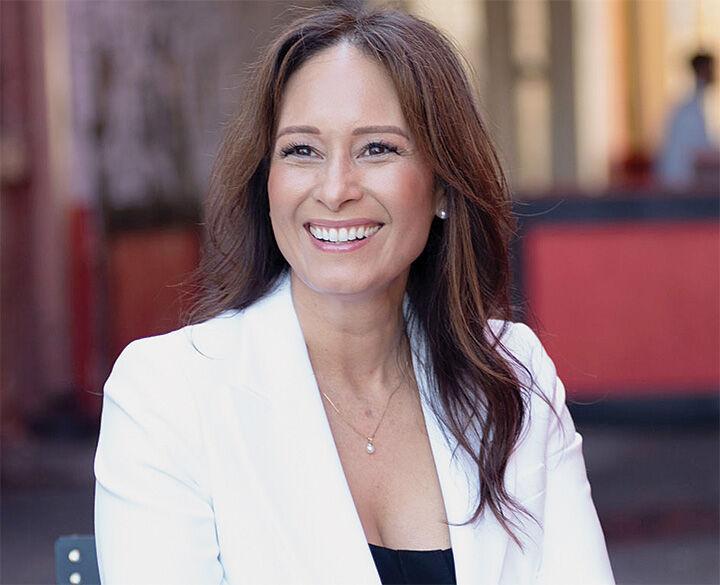
However, Republicans and a few Democrats gave caution to the plan on Friday, with reactions ranging from saying that the proposal needed to better address the real needs of Californians such as more focus on helping the state’s unemployed to accusing the Governor of using the program to “buy” his way out of the recall election later this year.
“California is facing a massive budget surplus. I stand with my Senate Republican colleagues and urge the governor to proceed with caution and address the real needs of the people,” said Senator Rosilicie Ochoa Bogh (R-Yucaipa) on Friday. “We have the opportunity to tackle issues that have plagued our state for quite some time, like housing, affordability and forest management. We must also invest in modernizing our education system to best meet the needs of students and parents.”
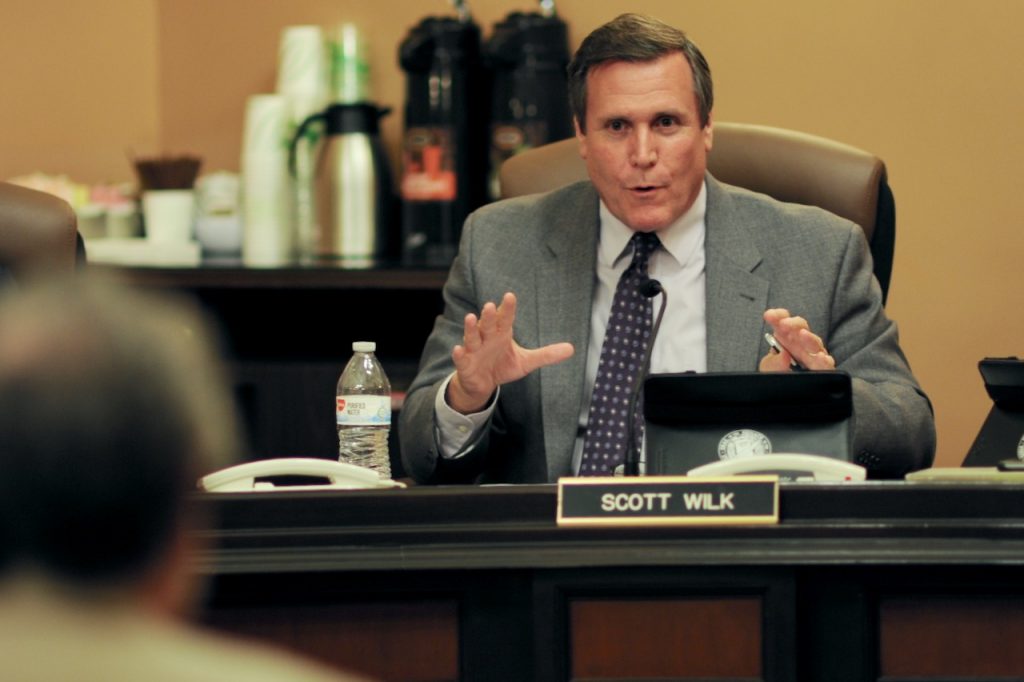
“California’s unemployment rate is 38 percent higher than the national average. Let us help revitalize our economy and empower employers and individuals to get back to work.”
“We cannot spend our way out of long-ignored problems. Let us invest in long-term solutions efficiently and effectively.”
Senator Republican Leader Scott Wilk (R-Santa Clarita), gave a more blunt rebuttal to Newsom’s plan.
“The governor has been channeling Oprah all week – where every studio audience member gets a new car,” noted Senator Wilk. “Unfortunately in about 18 months – when the money runs out – the car will be repossessed. Gavin’s ‘Recall Revision’ is a real life version of ‘Let’s Make a Deal.” Behind door number three – the tax bill.”
Newsom’s revised budget, including his $100 billion proposal, is expected to pass both the Assembly and the Senate, at least partially, in the coming months.
- Bill to Require Law Enforcement Disclosure if AI Was Used To Help Write Reports - August 7, 2025
- Gov. Newsom Files FOIA Request To ‘Expose True Cost’ Of L.A. Federal Troop Deployment for Anti-ICE Riots - August 6, 2025
- California Redistricting: How Newsom’s Plan Will Demolish Hard Fought GOP Gains - August 6, 2025



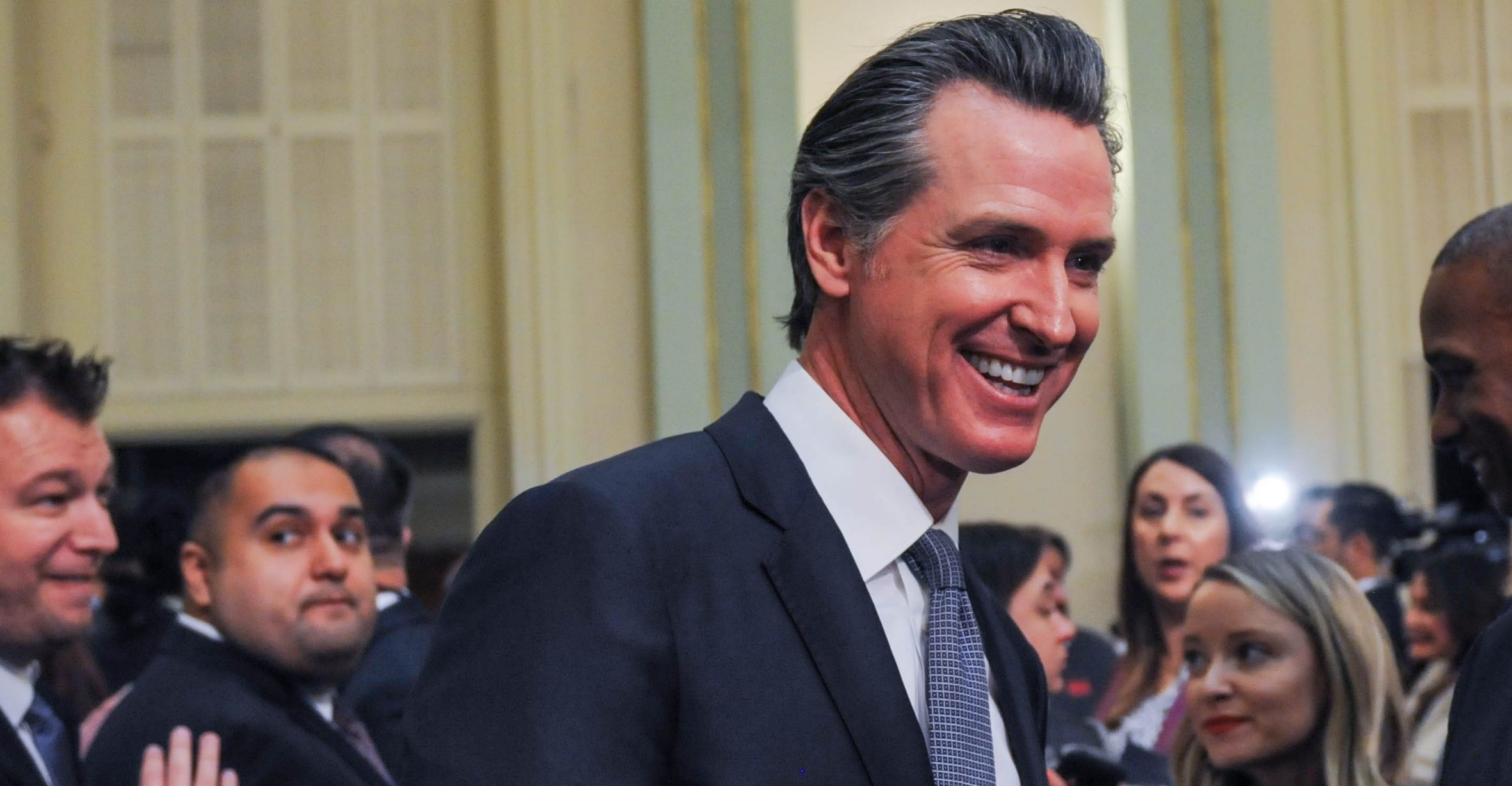
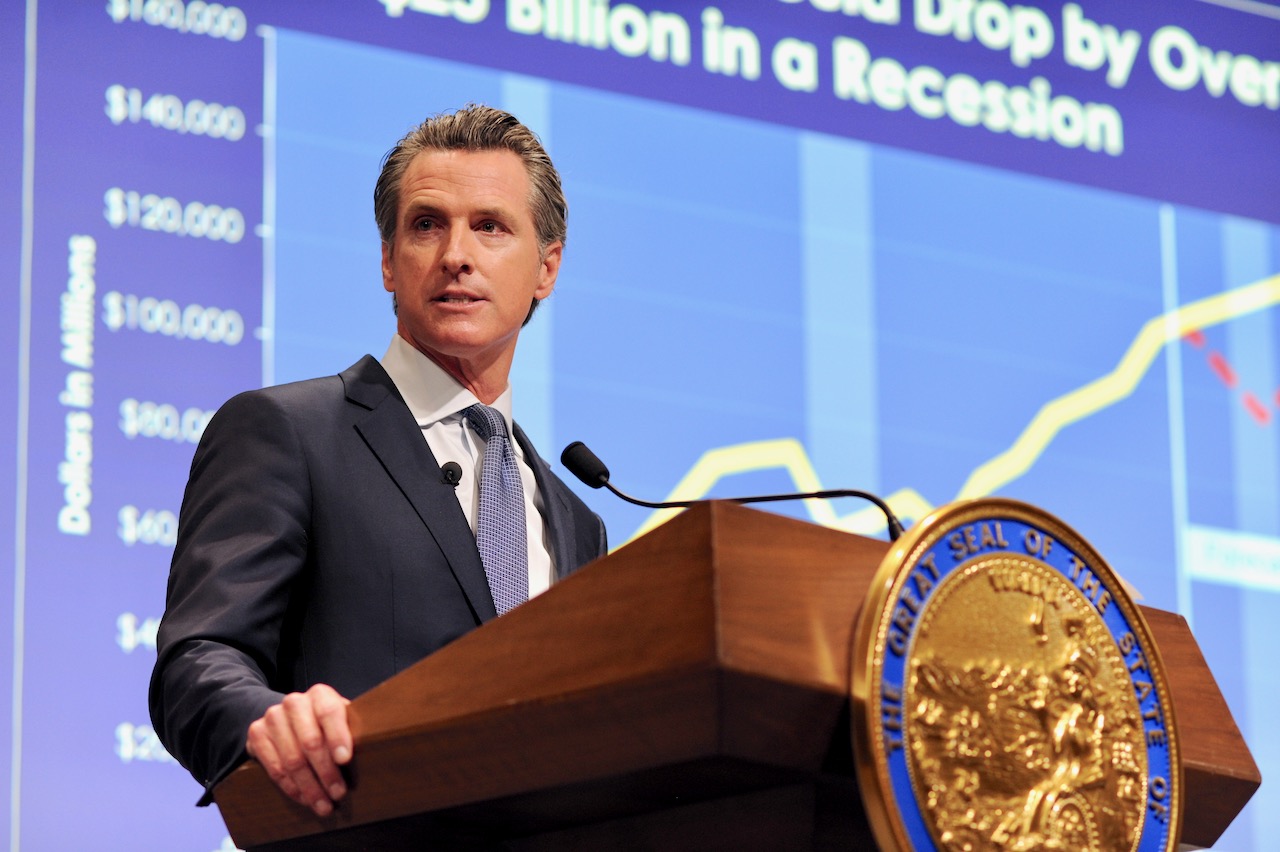
100 Billion Dollars
100 Billion Dollars
100 Billion Dollars
Does anyone blink at that kind of spending now a days! We should! Newsom is like a squirmy little kid with birthday money in his pocket! He can’t spend it quick enough. It will be wasted on his pet projects instead of truly helping the people of this state.
The only roar I hear is the gurgling from the pipes as money gets flushed down the drain!
100 BILLION DOLLARS.
What does that look like?
Right Cali Girl, print and spend. It’s the MMT (Modern Monetary Theory) that the Left is pushing. (https://www.investopedia.com/modern-monetary-theory-mmt-4588060). Universal Basic Income (UBI) is where we are going – California leading the way. The stimulus checks are just the latest nail that puts people in the coffin of government dependency. A few people are sounding the alarm but are people listening? https://finance.yahoo.com/news/gundlach-on-stimulus-and-ubi-120022461.html
Cali Girl, the left has gone all in for Modern Monetary Theory MMT. They say no need to worry about revenue and debt, the printing press is all we need. https://www.investopedia.com/modern-monetary-theory-mmt-4588060
Raymond, I always appreciate your comments and the links you provide.
You are right, our first clue should have been assigning former Stockton Mayor Michael Tubbs to advise Newsom on “Economic Mobility”. Universal Basic Income is wealth redistribution.
I ask many questions to provoke the general readership into doing their own research. Once we all start questioning the decisions of our so called reps, maybe then we vote for true representation.
All I see is a Democrat power grab at every level of government.
Can anyone wrap their head around and justify $267.8 billion taxpayer paid state budget?
Whether it is a federal program or a state program, it is paid by your taxes. The government does not generate money with the exception of bond money(fundraising) but it is our money.
$267.8 Billion Dollar Yearly Budget!!!
Raymond, this is slightly off-topic, but while I have you here I’d like to revisit the results of the Berkeley-IGS poll that showed unexpectedly weak numbers (36%) for support of the Newsom Recall. These results, which were widely publicized, had the effect of dispiriting some who support the Recall.
I know Berkeley-IGS was pretty solid at one time but I’m ready to throw this survey out entirely based on how the numbers were obtained. They sent email requests to desired participants; email addresses which were supposedly attached to voter registration (I never gave the registrar MY email address, did you? never mind that a large bloc of registered voters wouldn’t even have had an email address to give at the time they registered), and the opt-out process was easy or the email could have been ignored entirely. Thus we seem to have a self-selected sample of email recipients as the basis for this poll. I know no poll is perfect but this doesn’t seem at all like a random sample of CA registered voters to me. Wondering what you think?
Showandtell, you make a good point. That would be a question to ask the IGS director of the study. Your concern is the degree to which this “random sample” is representative of the population of CA registered voters. One source of sample bias would be the technology aspect that you describe. It’s possible that voters were randomly contacted by phone first and provided their email addresses to IGS upon agreeing to participate. As for the survey itself, the numbers are a snapshot in time and do not represent a trend; even when compared to the results of surveys done at earlier points in time. The reason is that different voters were surveyed. For a trend to be measured, they would select the same voters for each survey. But then, this would reduce the benefits of “randomization” which is very important to their design. Bottom line, I would not place a lot of stock in this IGS survey as far as PREDICTING the outcome of the upcoming recall election – at this point. I’m glad you brought this up. Hope this helps. 🙂
Yes, very helpful. Appreciate your reply. Thank you Raymond.
“Samples of registered voters with email addresses were provided to IGS by Political Data, Inc., a leading supplier of registered voter lists in California and were derived from information contained on the state’s official voter registration rolls.”
Showandtell, this statement from the IGS report tells me that ONLY voters with email addresses are included. Whatever method was used to gather email addresses is not clear. So, your concern is valid. The data were purchased from Political Data Inc.. On the company’s website you can type in your district number and find out what data fields are included in a sample. If a person does not use email, they cannot be in the sample. This will introduce sample bias.
P.S. I would say that their sample is probably skewed more toward voters who tend to be technology oriented. My mother has never used email.
Showandtell, I did some more digging in the PDI database site. For my senate district there are 61,685 Republicans and 43.4% have emails. There are 145,373 Democrats in the database and 50.1% have emails. The %difference, just eyeballing, would appear to be statistically significant. I would say that it is very possible that Republican recall supporters have likely been self-selected out of the survey by simply not having or not using email or not wanting to disclose their email address – to a substantive degree.
Raymond, really appreciative of all the research you did here. A lot to chew on, but I think we may have raised some doubts about the poll results in a number of the categories. The seemingly pro-Gov happy talk of the IGS press release, which I just scanned again, makes me think we SHOULD be scrutinizing the results. Statistical analysis of the poll itself is above my pay grade, but the methodology did make me wonder. As you know, sometimes polls are released to create opinion, not reflect it. In this case, we’ll see. Thank you again. 🙂
Showandtell, yes I agree. I will say that time, cost and convenience may have been the primary consideration for the researchers; rather than something nefarious. They could have used a paper survey or mailed out a flyer with a URL to the survey site. Either of these methods would have allowed voters without email addresses to participate. However it would have cost more, taken more time to administer and personnel hours to process. And there is the problem of authentication – how to determine if the person responding is actually the intended target. As for their survey itself, I guess it’s good enough for government work. 🙁